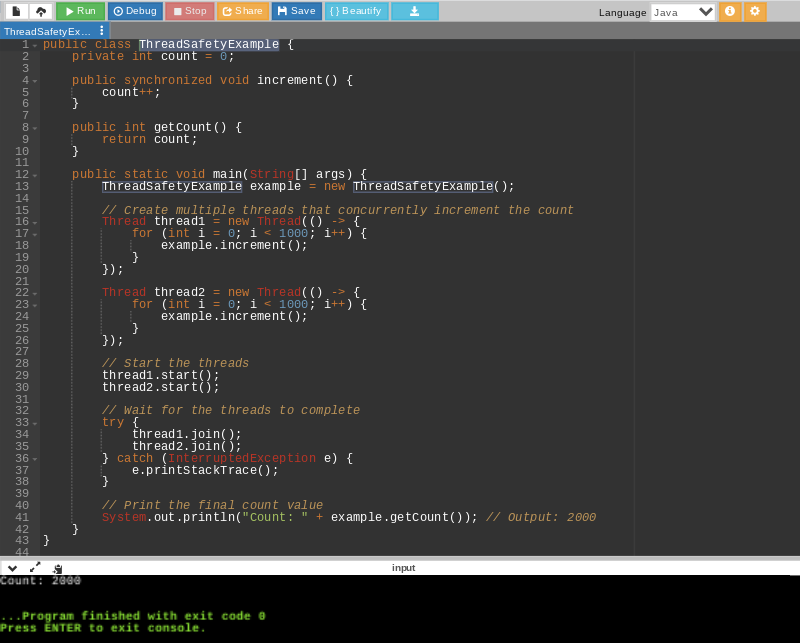Why Are Strings Immutable in Java? Ideal Practices and Usage Situations
Why Are Strings Immutable in Java? Ideal Practices and Usage Situations
Blog Article
Unalterable Strings: A Trick Part in Ensuring Data Consistency and Dependability
In the realm of information management, the relevance of unalterable strings can not be overstated. These constant sequences of personalities play a pivotal function in upholding the stability and precision of info within systems. By maintaining a state of immutability, information uniformity is made certain, cultivating a structure of dependability whereupon crucial procedures depend. The idea of unalterable strings transcends plain technicality; it is a linchpin in the complex web of information governance. As we discover the benefits, application techniques, and sensible applications of unalterable strings, a clearer image arises of their essential nature in safeguarding the digital landscape.
The Principle of Immutable Strings
Immutable strings, a fundamental principle in programs, refer to strings that can not be changed once they are created. Essentially, once a string value is appointed, any type of procedure that appears to change the string in fact creates a brand-new string. This immutability guarantees data uniformity and dependability in applications, as it avoids unforeseen adjustments to the initial data.
Benefits in Information Consistency

Information uniformity is essential in different elements of software program growth, including data source administration, multi-threaded environments, and distributed systems (Why are strings immutable in Java?). Immutable strings add substantially to achieving this uniformity by stopping data corruption because of concurrent gain access to. In situations where multiple procedures or strings communicate with the very same information at the same time, immutable strings work as a safeguard against race problems and synchronization concerns
Additionally, the immutability of strings simplifies debugging and screening procedures. With immutable strings, developers can rely on that as soon as a string is set, it will certainly continue to be unmodified, making it simpler to map the source of errors and ensuring that examination situations create consistent results. This integrity in data handling eventually leads to more robust and steady applications.

Carrying Out Unalterable Strings
Guaranteeing the immutability of strings needs a thoughtful method to their implementation in software program advancement. One crucial technique is to create string classes in a manner that avoids alterations when a string item is created. By making strings unalterable, designers can improve data uniformity and reliability in their applications.
To implement immutable strings properly, programmers ought to prefer developing new string items instead than changing existing ones. This practice ensures that as soon as a string is assigned a worth, it can not be altered. In addition, any kind of procedure that shows up to change the string ought to develop a brand-new string with the wanted modifications rather of altering the initial.
In addition, using unalterable strings can streamline concurrency monitoring in multi-threaded atmospheres. Considering that unalterable strings can not be transformed after production, they can be securely shared among numerous strings without the risk of data corruption.
Role in Reliability Assurance
In software advancement, the utilization of unalterable strings plays a critical duty in ensuring the dependability of information operations. Unalterable strings, as soon as produced, can not be customized, making sure that the information they represent continues to be constant throughout the application's implementation. This immutability home offers a level of assurance that the data being processed will certainly not be accidentally altered, causing unforeseen results or errors in the system.
By integrating unalterable strings into software layout, developers can boost the dependability of their applications by decreasing the threats related to mutable data - Why are strings immutable in Java?. Unalterable strings aid in protecting against data corruption or unplanned adjustments, which can be especially essential when handling sensitive details or when information integrity is vital
Additionally, using immutable strings streamlines simultaneous processing, as multiple threads can securely gain access to and share string data without the risk of one string modifying the material while another is reading it. This element contributes significantly to the total reliability of the software application system, ensuring constant and predictable actions in data handling operations.
Applications and System Combination
The seamless integration of Discover More unalterable strings right into various applications and systems is crucial for making sure durable information consistency and dependability throughout varied technical atmospheres - Why are strings immutable in Java?. Unalterable strings play a crucial duty in boosting the stability of information exchanges useful site and communications within facility software ecosystems. By integrating unalterable strings right into applications, developers can reduce the risks connected with information tampering, unauthorized alterations, and unintended modifications, thereby fortifying the general security stance of the system
In the context of system combination, unalterable strings work as a fundamental component for developing secure interaction networks and promoting seamless data transfers between different elements. Their unalterable nature makes sure that data sent in between systems remains unchanged and verifiable, lowering the possibility of inconsistencies or mistakes that can endanger the integrity of the entire system. In addition, unalterable strings can boost interoperability between disparate systems by offering a standardized style for data depiction, enabling extra effective data processing and exchange procedures across interconnected systems. By adopting immutable strings in applications and system assimilation processes, organizations can strengthen their information framework and promote the dependability and uniformity of their details possessions.
Final Thought
Finally, unalterable strings play a critical function in keeping data uniformity and reliability in numerous applications and system integrations. By guaranteeing that strings can not be changed as soon as produced, the stability of data is preserved, minimizing the risk of mistakes and inconsistencies. Implementing unalterable strings can dramatically enhance the integrity of systems, inevitably resulting in more exact and trustworthy data handling.

Report this page